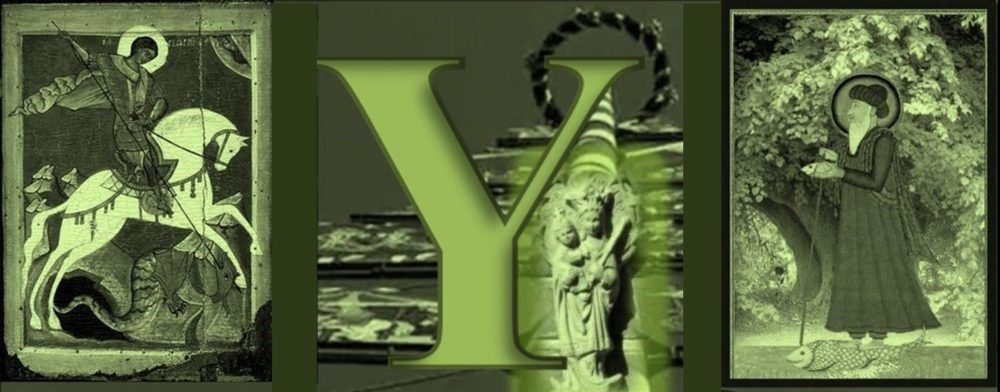The ancient Greek myths of Prometheus and Narcissus appear to have been resurrected in Renaissance thought, and for this reason they share a common impulse with humanism, which defines the human individual by what is horizontal and relative rather than what is vertical and Absolute.




These two myths provide an instrumental allegory of the New Age Movement and the Human Potential Movement as they bring to light the inner workings of the human psyche in a way that is congruent with the teachings of all times and places. We recall that it was Prometheus who
revolted against the Heavens to steal fire from Zeus, and Narcissus who became self- possessed with his own egoity through his reflection in the forest pool.
These two impulses—the first, a rebellion against all norms, including spiritual authority, and the second, an all-consuming self-absorption that imprisons the individual within their own self-image to the degree that it negates the very existence of the other—are expressions of the inversion of the human condition that have become everyday diagnosable criteria. As a result it has been declared that: “Modern [and postmodern] Western man understands himself according to the paradigm of Prometheus, a creature of Earth who has rebelled against Heaven” (Nasr & Jahanbegloo 2010:xix). Coupled with the following observation, one can see their significant roles in shaping the contemporary milieu: “Self-absorption defines the moral climate of contemporary society . . . . Narcissism has become one of the central themes of American culture” (Lasch 1978:25). Few would argue that rebelliousness and self-absorption are two defining characteristics of the New Age and the Human Potential Movement—if not the globalizing West as a whole.
The emergence of the Human Potential Movement is inseparable from the New Age Movement, as both emerged during the milieu of the 1960s counterculture. Some hold them to be synonymous with one other, yet this is not entirely the case as they do appear to have noticeable diff erences. The passage of time has been a testimony to their deep-rooted effect upon the collective psyche, one which is still palpable today. What is interesting is that both of these movements… Read here :Prometheus and Narcissus in the Shadows of the Human Potential Movement by Samuel Bendeck Sotillos

- AI (artificial intelligence) has always plagued mankind – By Jacob Howland – UnHerd
Technological arrogance brought about our Fall

Why are the countries of the West sliding toward electronically enhanced totalitarianism? Was it inevitable that government employees and corporate technicians wielding digital and psychological tools would promote a false conspiracy theory to cripple a sitting American president, and suppress and discredit news to aid a favoured candidate? Or that public health officials in Europe and the English-speaking world would use what may have been the deliberate release of a Chinese bioweapon to infringe civil liberties and hijack representative democracy?
Many factors have contributed to this predicament. But the ultimate cause lies in human intelligence, the germ and sap of the great hard oak that is, or was, the West (it’s old now, and growing soft with rot). That intelligence is a curse as well as a blessing was clear enough to the ancient Greeks and Hebrews, whose oldest legends drew vital meaning from the black earth, the primordial fundament of early human experience.

The origin myths of Genesis and Hesiod explain how the first human beings, wanting more, broke with God or the gods. It was a kind of primitive artificial intelligence that caused this quarrel: the combination of art and artifice that has always characterised the schemes of the human mind. Impelled not just by need, but by ungoverned desires, we came to rely on cunning deception and the use of tools to imitate things and living beings — skills that have always been essential, for example, in hunting, fishing, and warfare. The myths also teach that each advance — fossil-fuel power plants, for example, or the free-for-all of the internet — produces real or perceived problems that invite increasingly large-scale scientific and political “solutions”.
Seen in this light, recent developments such as the rush of American and European governments to transition to clean energy and electric vehicles, the emerging threat of a stealthy, two-pronged attack by electronic as well as biological viruses, the extensive manipulations or “nudges” of post-modern technocracy, and the employment of AI for the purpose of “information warfare”, are entirely unsurprising.
Hesiod tells a story from the Golden Age, before poverty, sickness and death came into the world, and gods and men (there were no women then) feasted together. The Titan Prometheus was the priestly master of ceremonies, in charge of dividing and distributing meat to the two parties, mortals and immortals. This office suited his presumably impartial nature: he was a god, but a philanthropic one with a recognisably human mind. In fact, he is not easily distinguished from man himself. Prometheus means Forethought, yet he saw only what was visible in the blaze of his cleverness. This is why, in myth, his brother Epimetheus — Afterthought — follows him through the dark like a comet’s tail of foolishness, constantly spoiling his work with unintended consequences. Read more here

